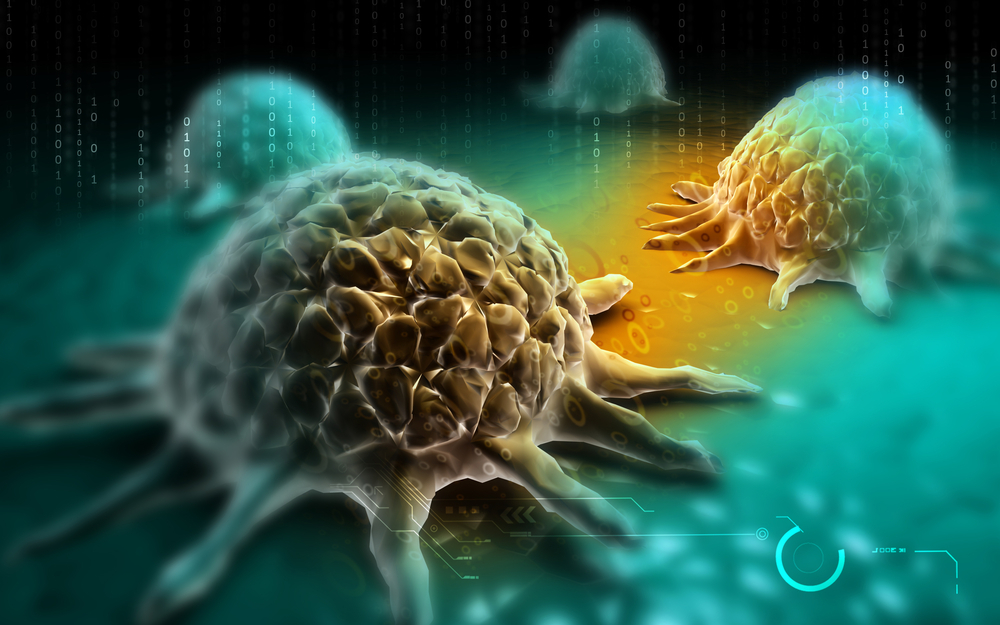Researchers at University College London (UCL) in England have discovered antigen diversity on the surface of cancer cells that influences immune system recognition and can be used to improve cancer immunotherapies targeting complex tumors. The research paper, “Clonal neoantigens elicit T cell immunoreactivity and sensitivity to immune checkpoint blockade,” was published in Science.
As tumors develop and grow, new mutations may appear that give rise to a genetically diverse tumor, which the immune system struggles to fight and that allows the disease to evolve and adapt. Such genetic complexity is flagged by tumor antigens, molecules that appear on the surface of cancer cells and that can be recognized by immune cells.
After analyzing data from hundreds of patients, researchers led by Cancer Research UK scientist Dr. Sergio Quezada and Prof. Charles Swanton, a Francis Crick Institute scientist, discovered that some of these antigens represent the earliest mutations in the cancer and are present in all tumor cells instead of just a subset of cells, as occurs with later mutations.
Researchers also isolated specialized T-cells from two lung cancer patients that were able to recognize the antigens present in all tumor cells. Despite their killing potential, these T-cells are switched off by the tumor’s own defense mechanisms.
This discovery made by UCL scientists is a big step forward into effective and patient-specific treatments. Researchers can now work on therapies that will specifically activate these T-cells to target the gene signature antigens present in every cell of the tumor, a way to direct immunotherapies toward cancer’s weak spots.
“This is exciting. There was evidence that complex tumors with many mutations could increase the chance of the immune system spotting them; now we can prioritize and target tumor antigens that are present in every cell, the Achilles heel of these highly complex cancers,” Swanton said in a press release.
“This opens up a way to look at individual patients’ tumours and profile all the antigen variations to figure out the best ways for immunotherapy treatments to work, prioritizing antigens present in every tumor cell and identifying the body’s immune T-cells that recognize them,” Swanton said. “This is really fascinating, and takes personalized medicine to its absolute limit where each patient would have a unique, bespoke treatment.”
The discovery represents not only a new avenue to develop better immunotherapies, but will also allow researchers to better understand immune responses to cancer and self-defense mechanisms in tumors, and why some patients respond to immunotherapy treatment while others don’t, helping scientists develop better treatments.


